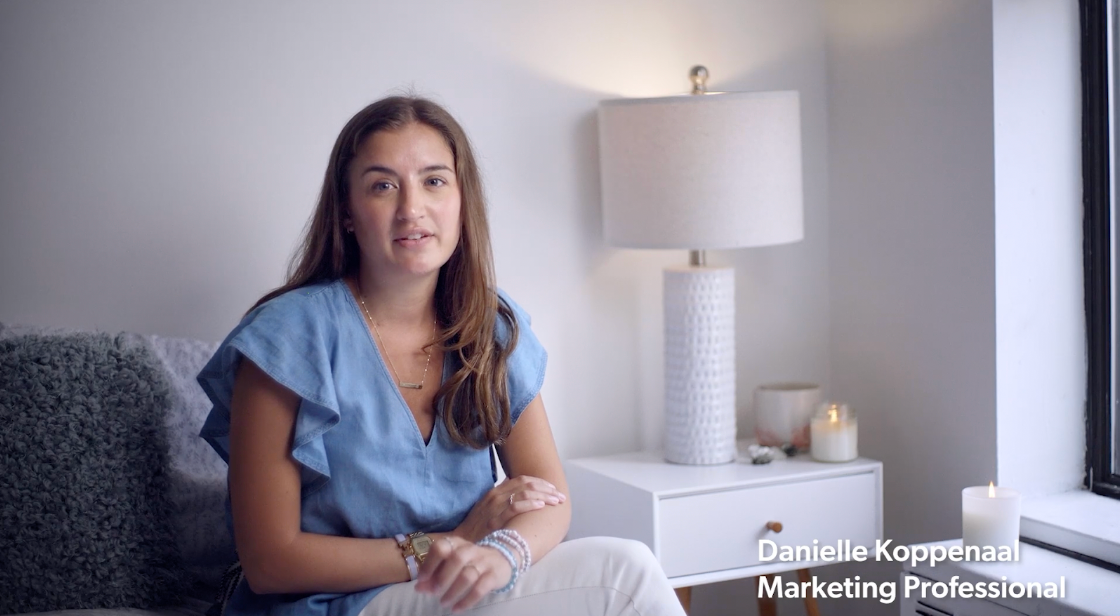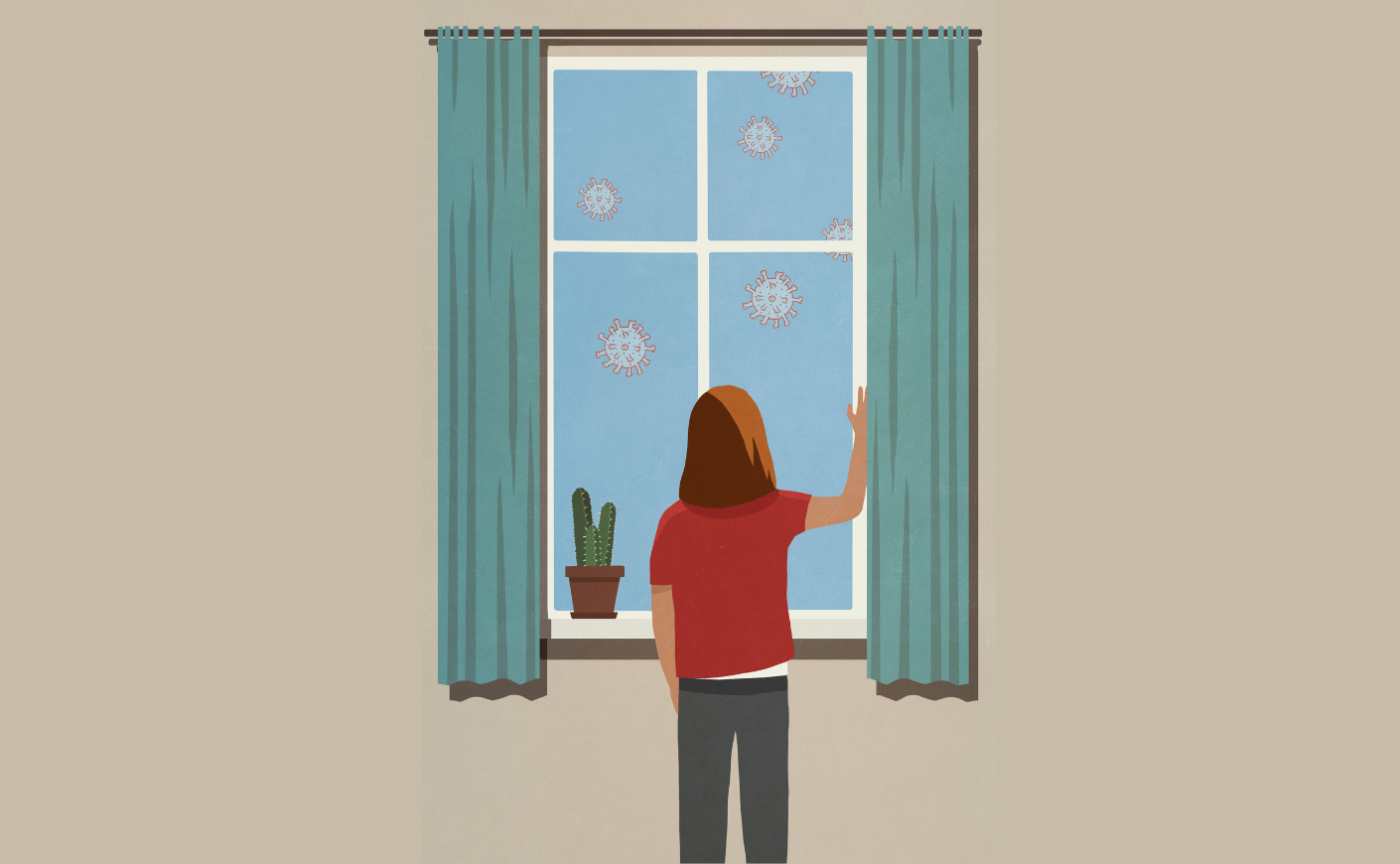After four years, we’re just now seeing evidence of the long-term effects the Covid-19 lockdowns had on our health and well-being. And we’re not just talking about loss of social skills or overgrown hair. The lockdowns had some major health implications completely unrelated to Covid.
In the spring of 2020, as the healthcare system became overwhelmed and elective procedures were prohibited, many people could not obtain routine diagnostic tests and follow-up treatment or were afraid to go to the doctor for fear of catching the virus. Research around the decline in new diagnoses of illnesses during that time has shown that undetected cases and delays in treatment have had a devastating impact on many people.
One of those people is 28-year-old Danielle Koppenaal, who was diagnosed with Crohn’s disease in 2015 and subsequently developed colitis. She successfully managed her disease with medication and routine colonoscopy screening. For several years, her disease was in remission and she was feeling generally well. After the pandemic began, the regular monitoring she would have received simply didn’t happen. In 2023, a biopsy revealed that she had Stage IV colorectal cancer, which she’s being treated for now. Koppenaal’s story is featured in a new documentary called Unlocked, in which filmmakers Francesco Lucarelli and Dana Richie examine the hidden toll of the pandemic lockdowns. I spoke to Koppenaal and the filmmakers about the health implications of the Covid lockdowns.
What was your experience with the healthcare system when the world shut down during the pandemic?
I didn’t hear from my doctors at all. My relationship with them just fell apart. I missed routine diagnostic testing that could have easily prevented the situation I’m in now. When I did touch base with my doctors, it was through telehealth visits. Even if I had been able to schedule a routine colonoscopy or bloodwork, I was afraid to go as I was hearing every day on the news that people who were immunocompromised should not go into hospitals or healthcare settings and risk catching the virus. After restrictions began to ease up, there was such a backlog and the doctors were so busy. I had an in-person appointment in the summer of 2022 and didn’t see my own gastroenterologist.
If the pandemic had not happened, how frequently would you have had a colonoscopy to monitor your Crohn’s and colitis?
I would have had one every six months. I was having them often because I had started taking a new drug (Humira) in late 2019. It was the first drug I was prescribed that helped me, and because I’d been so inflamed, I was being monitored pretty closely. Certainly, during those first two years of lockdown, I would have had several colonoscopies and other routine tests.
Being a young patient, I didn’t think, “Oh, I should fight for a colonoscopy.” I have no family history and polyps that had been removed during my last colonoscopy were benign.
I had a stool test and bloodwork (in 2022) and those results didn’t suggest anything was wrong. But the cancer was already there because, by the time I had a biopsy in May 2023, I was diagnosed with Stage IV cancer.

Did you have any typical colon cancer symptoms, anything that would suggest something was wrong?
No. Typically when you have colorectal cancer, you have bleeding or a painful blockage, but I wasn’t having any of those symptoms. I went to urgent care in early 2023 because I was experiencing difficulty breathing and a sharp pain in my chest. I was having these symptoms because I had ascites, a buildup of cancer fluid that was pressing up against my organs. The cancer had already spread to my ovaries and my right ovary was enlarged and, in my small body frame, those two things were causing pressure and making it hard for me to breathe.
Francesco, why is it so important to tell Danielle’s story in this documentary?
Francesco Lucarelli: During the pandemic, there was a confluence of things that were all tremendously unfortunate. Danielle is now in a situation where she’s one of thousands of people out there who missed routine diagnostic procedures or whose treatment was delayed. We’re seeing a surge in younger patients being diagnosed with more advanced, aggressive cancers, particularly colorectal and breast cancers. This is not a typical COVID story. This isn’t about, “Did you get vaccinated? Did you wear a mask?” There will certainly be a generational impact because of the lockdowns that we’re only now realizing, in many areas of society, especially health and wellness.
What would you say to people who want to forget that the pandemic happened, who don’t want to talk about it?
Dane Richie: Most people don’t talk about Covid because it’s too painful or too soon. But its aftermath is undeniable. I think it’s imperative to talk about it because collective conversation can lead to breakthroughs and healing. That’s our goal with UNLOCKED to humanize those extraordinary experiences through the ordinary people who lived it.
Danielle: It doesn’t surprise me that people don’t want to talk about it, but I feel like we have to. I hope that by bringing awareness to this, sharing my story, I can help others dealing with similar challenges.
Natalie Silverstein, MPH, is a writer, speaker, nonprofit founder, and passionate advocate for family and youth service. She is the author of two books on volunteering, Simple Acts: The Busy Family’s Guide to Giving Back and Simple Acts: The Busy Teen’s Guide to Making a Difference, and the host of the award-winning podcast, Simple Acts, Big Impact: Celebrating Teen Changemakers. Follow her on Instagram and Facebook at @simpleactsguide.









